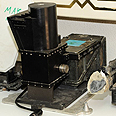The official Syrian Arab News Agency published photos on Thursday of what it said was Israeli espionage equipment recently found at an unspecified coastal location.
State television also broadcast pictures of the "Israeli spy devices" unearthed in Syria, in what it said was proof of Israel's involvement in the armed revolt against President Bashar Assad .
Related stories:
- Syrian rebels: Treating UN peacekeepers like 'guests'
- UN says 20 peacekeepers held by Syrian rebels
- Israel warns it can't 'stand idle' as Syria war spills over
The broadcaster showed footage of rocks used to "camouflage" surveillance cameras found on the Syrian coast, as well as recording and video devices to transmit pictures and audio "in real time" from "sensitive locations."
"This is proof of Israel's role in events in Syria," an unidentified officer said in the broadcast.
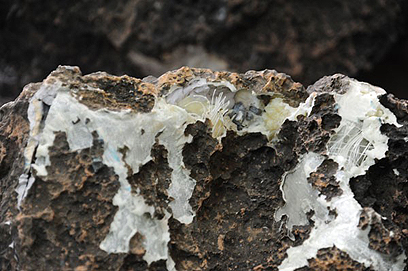
"Terrorists (rebels) benefit from the information gathered thanks to this system, and at the same time the Zionist entity's own interests are served," the officer added.
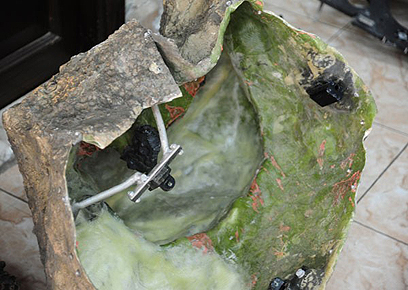
'Spy device' parts
Damascus blames foreign-backed terrorists for the deadly uprising against Assad that broke out in March 2011.
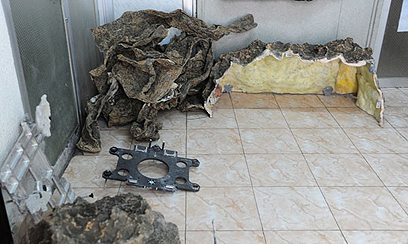
Assad's regime insists that it is the target of a US-led plot aimed at destroying Syria because of its support for anti-Israeli terrorist groups such as Lebanon's Hezbollah .
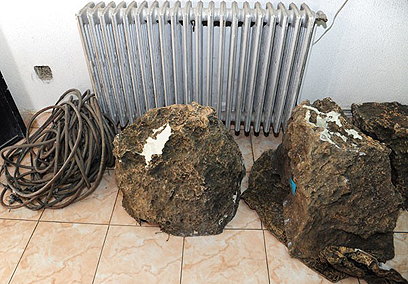
Earlier this week Assad vowed that Syria would retaliate against Israel for an airstrike on a weapons convoy in the Damascus area last month, which foreign news outlets attributed to the IDF.
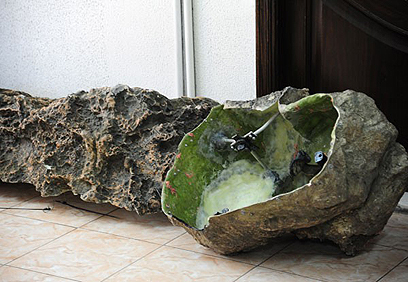
"Retaliation does not mean missile for missile or bullet for bullet. Our own way does not have to be announced," the Syrian president said in a televised interview with The Sunday Times.
Assad told the British newspaper Saturday night that Syria had always retaliated for Israeli actions, "but we retaliated in our own way, and only the Israelis know what we mean."
In late January the Syrian army announced that "Israeli planes attacked a military research center in Damascus district." Other reports said the airstrike targeted a convoy carrying advanced SA-17 anti-aircraft missiles to Lebanon. A week later Defense Minister Ehud Barak said during a security conference in Munich, "What happened in Syria several days ago… that's proof that when we say something we mean it. We say that we don't think it should be allowed to bring advanced weapons systems into Lebanon."
